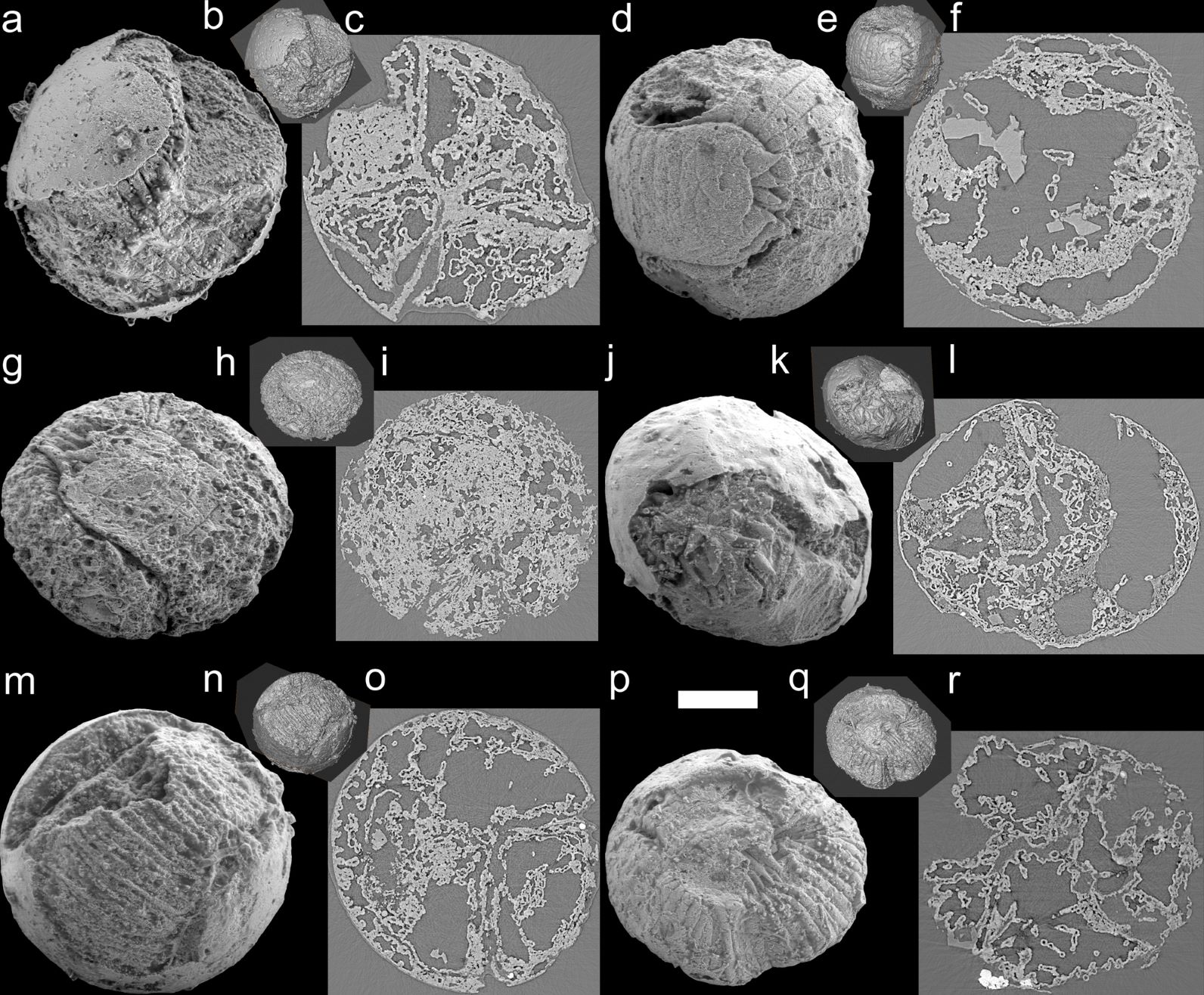The fossilized brain of a 500-million-year-old worm has been discovered by researchers, opening up new insights into how brains evolved and patching up holes in the fossil records of ancient scalidophorans.
The ring-shaped structure, which the researchers interpret as the worm brain, marks the first fossilized nervous system of such a creature, made possible by a sweeping analysis of fossilized Markuelia hunanensis embryos at relatively late stages of development. What makes these specimens so special is their three-dimensional fossilization, which is particularly rare for delicate nervous systems and allows incredible analysis of structures never seen before by science.
Surface images of the embryo specimens. Image Credit: Dong et el., 2022
Markuelia hunanensis was a worm-like marine animal known only from embryonic stages of development. It existed during the Cambrian Period, in which plants began to emerge on Earth and multicellular, mineralized organisms became remarkably more common. You may have heard of some of their closest living relatives, including the “penis worm”, which is named for obvious reasons.
Found in the Hunan Province, South China, the specimen astounded the international team of scientists.
“Prior to maybe five or six years ago it was simply non-existent. Usually it’s all in the form of completely flattened fossils,” Phillip Donoghue, study author and Professor at the University of Bristol, told Newsweek.
“It’s preserved in a fundamentally different way. Basically, as the fossil begins to decay, the microbes that are consuming it actually lithify themselves and turn the thing into rock. So, it turns into a piece of rock before the sediment [turns into stone], and that protects it from being collapsed into two dimensions.”
The worm brain is of particular importance due to its similarities with nematodes – a remarkably important scientific model organism – but it also contributes to our understanding of how brains developed throughout evolution in arthropods.
The pristine fossil offers hope that samples preserved from this period could hold many more secrets than originally thought, providing soft tissues in three dimensions in ways most fossils do not.
The research was published in the journal Royal Society Open Science.
Source Link: Incredible 500 Million-Year-Old Fossilized Worm Brain Offers Missing Insights Into Evolution
